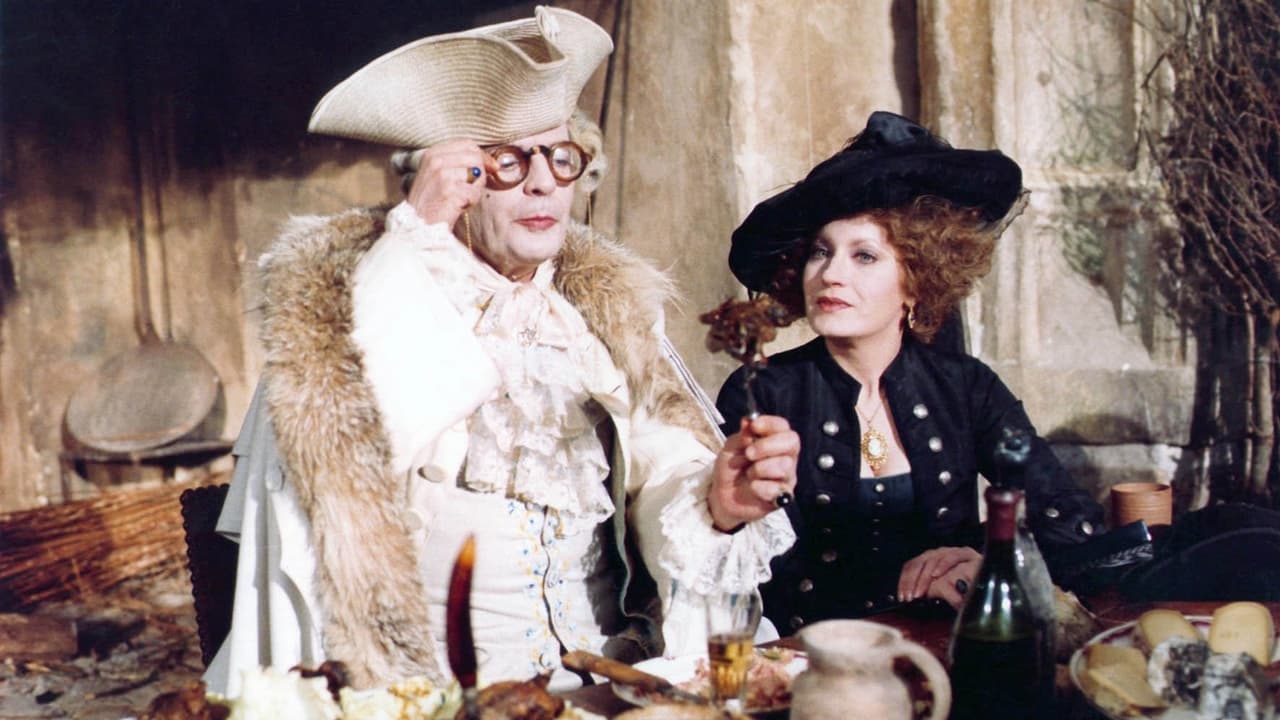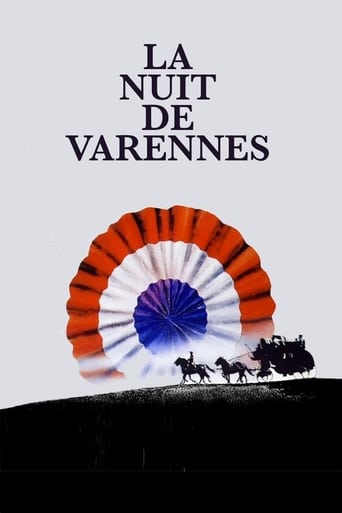

A really meaningful film from Ettore Scola. Scola captures France during the nearly surreal last moments of the reign of Louis XVI and Marie-Antoinette. A group of disparate travelers take a coach through the French countryside (all for different reasons) and all come to various ends by nightfall. Jean-Louis Barrault is Nicolas-Edme Rétif de la Bretonne, the writer whose work consisted mainly of his sexual escapades. Hannah Schygulla is one of the Queen's ladies in waiting. Marcello Mastrioanni is a sad and decaying Chevalier de Seingalt (aka Casanova). It's a great movie full of insights into life, change, fear and loneliness. Barrault is excellent and Schygulla, looking absolutely ravishing, gives what has to be her best non-Fassbinder performance. The great, and ironically cast, Mastrioanni is brilliant. He's really sad, particularly when hiding out in a bathroom stall trying to pull himself together with lipstick & powder. Scola's direction is perfect and while the film could have become a boring talk-fest, it's never dull. Also featuring Harvey Keitel as the American Thomas Paine, Laura Betti as a foolish opera singer and, in a cameo, Jean-Louis Trintignant. The breathtaking cinematography is by Armando Nannuzzi.
... View MoreI have just seen Sofia Coppola's Marie Antoinette and it was such fairy floss that it made me want to see La Nuit de Varennes again. Unfortunately it doesn't seem to be available on DVD, only VHS and Amazon UK are out of stock.Anyone know when if and when it might be available on DVD? Re: my comment about Marie Antoinette: it's a well made film with a look inside Versailles and apparently the depiction of the protocol is spot on but there's no context. This wasn't meant to be a review of Marie Antoinette but apparently I have to write 10 lines or my comment won't be accepted.
... View MoreWe really enjoyed this. Barrault and Mastroianni are terrific actors--did an outstanding job. The philosophical questions raised are still worth considering today, as the movie implies, and yet they are raised in an interesting and indirect way, so the viewer doesn't feel bludgeoned or lectured at.I was interested to discover that the flight to Varennes was in fact historical, though I could not discover whether Restif de Bretonnes (Barrault's character) was actually at the event and commented on first-hand knowledge. He did write extensively about life and events of the time. The interchange of ideas seemed natural, despite the apparent absurdity of finding all of them in the same coach at the same time. Sort of like those "if you could invite 5 historical figures to dinner at the same time" ideas.Very much worth seeing.
... View MoreI frankly don't find much value in movie reviews, amateur or professional, so I won't belabor my points. Simply put, this is the smartest film I've ever seen. A coherent plot and intelligent dialog are critical to my movie pleasure, and this one has them. It is so good that it is almost novelistic, which is not to say that it could have been taken from a novel. Some review guide said of this movie that it is "talk, talk, talk." Exactly! The conversations are witty, charming, and often funny. Be advised that this is not akin to the insipid "My Dinner With Andre," with its metaphysical posturing. One must say this carefully about any movie, but there are actually things to learn from this film, though it is far more entertaining than didactic. The acting is mature and magnificent. I doubt that Mastroianni was ever in a better role. Jean-Louis Barrault and Hanna Schygulla are brilliant. This, along with his other excellent films, should have made director Scola one of the titans of modern cinema. Instead it has never made it to DVD and you will be fortunate to ever see it. (Update: It is now available as an all- region Blu-Ray.)
... View More